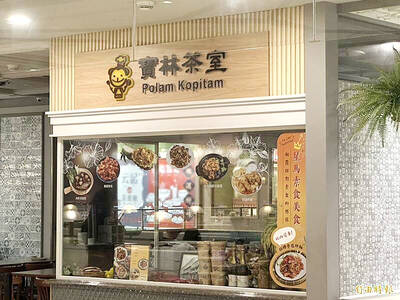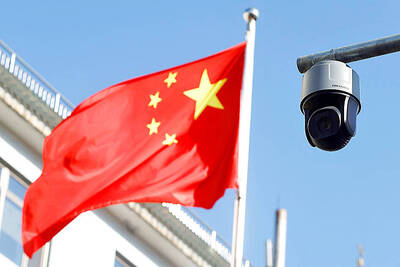President Ma Ying-jeou (馬英九) yesterday defended the proposal to establish representative offices for the Straits Exchange Foundation (SEF) in China and for the Association for Relations Across the Taiwan Straits (ARATS) in Taiwan, adding that the two sides would not unfurl national flags at such offices.
“There will be no national flags or other kinds of flags designed to specify cross-strait relations inside or outside the offices because we are not foreign nations to each other,” he said yesterday during an interview with the Chinese-language United Evening News.
Ma said the services offered by the representative offices would include handling travel documents, but visa issuance would not be performed.
The Mainland Affairs Council said Taiwan plans to set up three representative offices in China and is unlikely to allow Beijing to set up 10 offices in Taiwan for now. The two sides will continue to negotiate the number of offices on each side, the council said.
The establishment of the cross-strait representative offices has drawn criticism from the opposition camp. Democratic Progressive Party (DPP) lawmakers said that the move could damage the nation’s sovereignty, adding that China could use the offices as a channel for intelligence gathering in Taiwan.
Mainland Affairs Council Minister Wang Yu-chi (王郁琦) reiterated that Taiwan’s offices in China would solely deal with consular affairs and protecting Taiwanese residing in the country.
Ma said that the government would adhere to the Constitution in establishing the representative offices.
Proponents of the move say that while the government will not acknowledge the existence of China as an independent nation, it cannot deny the government on the other side as an authority with governing rights.
The say the opening of SEF and ARATS offices is in line with Ma’s China policy and is aimed at enhancing cross-strait ties.
Authorities are reviewing the Act Governing Relations between the People of the Taiwan Area and the Mainland Area (臺灣地區與大陸地區人民關係條例), which governs legal matters between people from both sides of the Taiwan Strait, in relation with the proposed offices.

POLAM KOPITIAM CASE: Of the two people still in hospital, one has undergone a liver transplant and is improving, while the other is being evaluated for a liver transplant A fourth person has died from bongkrek acid poisoning linked to the Polam Kopitiam (寶林茶室) restaurant in Taipei’s Far Eastern Sogo Xinyi A13 Department Store, the Ministry of Health and Welfare said yesterday, as two other people remain seriously ill in hospital. The first death was reported on March 24. The man had been 39 years old and had eaten at the restaurant on March 22. As more cases of suspected food poisoning involving people who had eaten at the restaurant were reported by hospitals on March 26, the ministry and the Taipei Department of Health launched an investigation. The Food and

A fourth person has died in a food poisoning outbreak linked to the Xinyi (信義) branch of Malaysian restaurant chain Polam Kopitiam (寶林茶室) in Taipei, Deputy Minister of Health and Welfare Victor Wang (王必勝) said on Monday. It was the second fatality in three days, after another was announced on Saturday. The 40-year-old woman experienced multiple organ failure in the early hours on Monday, and the family decided not to undergo emergency resuscitation, Wang said. She initially showed signs of improvement after seeking medical treatment for nausea, vomiting and diarrhea, but her condition worsened due to an infection, he said. Two others who

The long-awaited Taichung aquarium is expected to open next year after more than a decade of development. The building in Cingshui District (清水) is to feature a large ocean aquarium on the first floor, coral display area on the second floor, a jellyfish tank and Dajia River (大甲溪) basin display on the third, a river estuary display and restaurant on the fourth, and a cafe and garden on the fifth. As it is near Wuci Fishing Port (梧棲漁港), many are expecting the opening of the aquarium to bring more tourism to the harbor. Speaking at the city council on Monday, Taichung City Councilor

Taiwanese should be mindful when visiting China, as Beijing in July is likely to tighten the implementation of policies on national security following the introduction of two regulations, a researcher said on Saturday. China on Friday unveiled the regulations governing the law enforcement and judicial activities of national security agencies. They would help crack down on “illegal” and “criminal” activities that Beijing considers to be endangering national security, according to reports by China’s state media. The definition of what constitutes a national security threat in China is vague, Taiwan Thinktank researcher Wu Se-chih (吳瑟致) said. The two procedural regulations are to provide Chinese